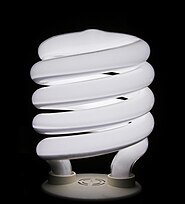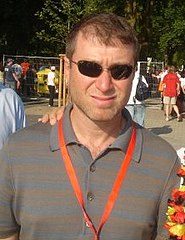Portal:Energy
| Main page | New articles & Tasks |
 The Energy Portal Welcome to Wikipedia's Energy portal, your gateway to energy. This portal is aimed at giving you access to all energy related topics in all of its forms.
|
Page contents: Selected article • Selected image • Selected biography • Did you know? • General images • Quotations • Related portals • Wikiprojects • Major topics • Categories • Help • Associated Wikimedia |
Introduction
Energy (from Ancient Greek ἐνέργεια (enérgeia) 'activity') is the quantitative property that is transferred to a body or to a physical system, recognizable in the performance of work and in the form of heat and light. Energy is a conserved quantity—the law of conservation of energy states that energy can be converted in form, but not created or destroyed. The unit of measurement for energy in the International System of Units (SI) is the joule (J).
Forms of energy include the kinetic energy of a moving object, the potential energy stored by an object (for instance due to its position in a field), the elastic energy stored in a solid object, chemical energy associated with chemical reactions, the radiant energy carried by electromagnetic radiation, the internal energy contained within a thermodynamic system, and rest energy associated with an object's rest mass. These are not mutually exclusive.
All living organisms constantly take in and release energy. The Earth's climate and ecosystems processes are driven primarily by radiant energy from the sun. The energy industry provides the energy required for human civilization to function, which it obtains from energy resources such as fossil fuels, nuclear fuel, and renewable energy. (Full article...)
Selected article
There are many motivations to improve energy efficiency. Reducing energy use reduces energy costs and may result in a financial cost saving to consumers if the energy savings offset any additional costs of implementing an energy efficient technology. Reducing energy use is also seen as a solution to the problem of reducing carbon dioxide emissions. According to the International Energy Agency, improved energy efficiency in buildings, industrial processes and transportation could reduce the world's energy needs in 2050 by one third, and help control global emissions of greenhouse gases.
Energy efficiency and renewable energy are said to be the twin pillars of sustainable energy policy and are high priorities in the sustainable energy hierarchy. In many countries energy efficiency is also seen to have a national security benefit because it can be used to reduce the level of energy imports from foreign countries and may slow down the rate at which domestic energy resources are depleted.
Selected image

Photo credit: United States Department of Energy
The fireball created as energy is released in a nuclear explosion.
Did you know?

- Buildings constructed to the German Passivhaus standard use 75% to 95% less energy for space heating and cooling than current new buildings in the United States?
- Crossing 4,000 km (2,500 miles), the Druzhba pipeline is the world's longest oil pipeline?
- Coal is ground to a powder before being burnt in fossil fuel power plants?
- Compact fluorescent lamps (pictured) use about 1/4 of the energy of normal incandescent light bulbs, and pay for themselves after about 500 hours of use?
- Nuclear power in France produces 78% of all the country's electricity - more than in any other nation?
- Positive lightning bolts are typically six to ten times more powerful than normal lightning — and aircraft are not designed to withstand them?
- Dark energy is a hypothetical form of energy which permeates all of space?
Selected biography
Between 1992 and 1995, after Soviet president Mikhail Gorbachev's 'perestroika' economic reforms permitted the opening of small private businesses, Abramovich founded five companies that eventually evolved to specialize in the trading of oil and oil products. With the approved by Boris Yeltsin, in 1995 Roman Abramovich and partner Boris Berezovsky paid $100m for a controlling interest in the major Russian Sibneft oil company, then valued at $150 million. Berezovsky subsequently sold his stake to Abramovich after fleeing to London. In September 2005 Abramovich sold his interest in Sibneft to state energy giant Gazprom for $13 billion.
Despite maintaining that his primary residence is Moscow, in 2006 Abramovich was named as the second-wealthiest person in the United Kingdom. His property investments and other assets were estimated at £10.8 billion. In June 2003, Abramovich became the owner of the companies that control Chelsea Football Club (soccer club). He also became the world's greatest spender on luxury yachts, with four boats in what the media have called the 'Abramovich Navy'.
Although he rarely visits the area, in October 2005 Abramovich was reappointed governor of the impoverished Chukotka Autonomous Okrug in the Russian Far East where he has made significant financial contributions. He was originally elected to the governorship in 1999.
In the news
- 13 December 2024 – Russian invasion of Ukraine
- Russia launches one of its largest attacks on the Ukrainian energy infrastructure since the conflict began, with about 290 missiles fired and drones striking multiple regions. The Russian Defense Ministry claims that the attack was in response to a recent Ukrainian ATACMS attack on Taganrog-Central air base in Rostov Oblast, Russia. (The Kyiv Independent) (UNN)
- 4 December 2024 – 2024 Cuba blackouts
- Another round of blackouts in Cuba leave millions of households without power. The energy ministry says that it is prioritizing restoring electricity to hospitals and water pumping facilities. (Reuters)
- 30 November 2024 – Ibar-Lepenac attack
- Police arrest eight people linked to an explosion on a canal near Zubin Potok, Mitrovica District, Kosovo, that supplies water to the country's two main power plants. The Kosovar government blames Serbia for the "terrorist" acts, which Serbia denies. (Al Jazeera) (Euronews) (Le Monde)
- 28 November 2024 – Russian invasion of Ukraine
- Russian strikes against Ukrainian infrastructure, Ukrainian energy crisis
General images
Quotations
- "Breaking the dependence on oil is, in my view, a matter of political will. A consistent policy will turn obstacles into opportunities. To hide behind excuses of ignorance or economic considerations is not leading us to a sustainable future." – Mona Sahlin, 2006
- "America is addicted to oil, which is often imported from unstable parts of the world. The best way to break this addiction is through technology." – George W. Bush, 2006
- "Energy independence [for India] has to be our nation's first and highest priority. We must be determined to achieve this within the next 25 years i.e. by the year 2030." – Abdul Kalam, 2005
- "Energy security is assuming a strategic significance once reserved for territorial security, and the global environmental challenges from energy production and use are amongst our most pressing." – John Howard, 2006
Related portals
WikiProjects
WikiProjects connected with energy:
Other WikiProjects that may be of interest:
Major topics
Major categories
National energy supply, use & conservation
National electricity sector
Politics, economics, environment
- Climate change
- Energy conservation
- Energy economics
- Energy crises
- Energy development
- Energy policy
- Peak oil
Energy sources
- Fuels
- Biofuels
- Fossil fuels
- Fusion power
- Nuclear technology
- Renewable energy
- Energy conversion
- Electric power
- Energy storage
Energy-related design
Scientific usage
Help

Puzzled by energy?
Can't answer your question?
Don't understand the answer?
- Ask at the reference desk
- Read the Wikipedia help pages
For further ideas, to leave a comment, or to learn how you can help improve and update this portal, see the talk page.
Associated Wikimedia
The following Wikimedia Foundation sister projects provide more on this subject:
-
Commons
Free media repository -
Wikibooks
Free textbooks and manuals -
Wikidata
Free knowledge base -
Wikinews
Free-content news -
Wikiquote
Collection of quotations -
Wikisource
Free-content library -
Wikiversity
Free learning tools -
Wiktionary
Dictionary and thesaurus


























































































































































































